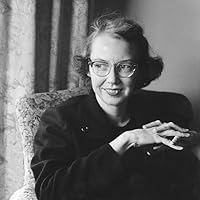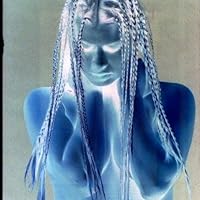How To Write Fiction Quotes
Quotes tagged as "how-to-write-fiction"
Showing 1-30 of 38

“I used to be afraid about what people might say or think after reading what I had written. I am not afraid anymore, because when I write, I am not trying to prove anything to anyone, I am just expressing myself and my opinions. It’s ok if my opinions are different from those of the reader, each of us can have his own opinions. So writing is like talking, if you are afraid of writing, you may end up being afraid of talking”
― Pearls Of Eternity
― Pearls Of Eternity

“The power of a writer is that he is a god of sorts. He can create his own worlds and populate them with his own people, all by the powers of his imagination. It's the closest a man can come close to the gods. No wonder the most successful writers are considered immortals”
― Pearls Of Eternity
― Pearls Of Eternity

“Fiction operates through the senses, and I think one reason that people find it so difficult to write stories is that they forget how much time and patience is required to convince through the senses. No reader who doesn't actually experience, who isn't made to feel, the story is going to believe anything the fiction writer merely tells him. The first and most obvious characteristic of fiction is that it deals with reality through what can be seen, heard, smelt, tasted, and touched.”
― Mystery and Manners: Occasional Prose
― Mystery and Manners: Occasional Prose

“Many writers write because they’ve been there, seen that, did it and burnt their fingers”
― Pearls Of Eternity
― Pearls Of Eternity

“You can edit what you write. Why not edit what you say? If it hurts somebody, you can still offer an apology or withdraw your statements”
― Pearls Of Eternity
― Pearls Of Eternity

“Words disappear in the air, but writing remains. If you want something to be remembered about you, write it down”
― Pearls Of Eternity
― Pearls Of Eternity

“I still suspect that most people start out with some kind of ability to tell a story but that it gets lost along the way. Of course, the ability to create life with words is essentially a gift. If you have it in the first place, you can develop it; if you don't have it, you might as well forget it.
But I have found that people who don't have it are frequently the ones hell-bent on writing stories. I'm sure anyway that they are the ones who write the books and the magazine articles on how-to-write-short-stories. I have a friend who is taking a correspondence course in this subject, and she has passed a few of the chapter headings on to me—such as, "The Story Formula for Writers," "How to Create Characters," "Let's Plot!" This form of corruption is costing her twenty-seven dollars.”
― Mystery and Manners: Occasional Prose
But I have found that people who don't have it are frequently the ones hell-bent on writing stories. I'm sure anyway that they are the ones who write the books and the magazine articles on how-to-write-short-stories. I have a friend who is taking a correspondence course in this subject, and she has passed a few of the chapter headings on to me—such as, "The Story Formula for Writers," "How to Create Characters," "Let's Plot!" This form of corruption is costing her twenty-seven dollars.”
― Mystery and Manners: Occasional Prose

“A writer reports on the universe. When he presents his credentials, the gates of heaven and hell are equally opened to him. He can hear the devil’s defense and god’s accusations. The guards at the king’s heart let him in. The writer can be anything and any one he wants. When he writes he is a god, he creates.”
― Pearls Of Eternity
― Pearls Of Eternity

“Don't believe in everything that is written. Not everything that is written is true”
― Pearls Of Eternity
― Pearls Of Eternity

“People speak even after their death. Only do speak those who have recorded their speech in writing before they die, the rest go silent forever”
― Pearls Of Eternity
― Pearls Of Eternity

“We write, not because we claim to know more than others, but perhaps because we want to know more than others. Writers are explorers”
― Pearls Of Eternity
― Pearls Of Eternity

“Now the second common characteristic of fiction follows from this, and it is that fiction is presented in such a way that the reader has the sense that it is unfolding around him. This doesn't mean he has to identify himself with the character or feel compassion for the character or anything like that. It just means that fiction has to be largely presented rather than reported. Another way to say it is that though fiction is a narrative art, it relies heavily on the element of drama.”
― Mystery and Manners: Occasional Prose
― Mystery and Manners: Occasional Prose

“One author said "I write because I want to live a footprint in the sands of history.” It's hard to live a footprint in the sands of history when giants are passing through the same sands unless you are one of the giants”
― Pearls Of Eternity
― Pearls Of Eternity

“If I can write, who possibly can’t. Even drawing a line in the sand is writing”
― Pearls Of Eternity
― Pearls Of Eternity

“You say you have nothing to write about? How do you find things to talk about? You can write about those things you like to talk about, that's your area of expertise”
― Pearls Of Eternity
― Pearls Of Eternity

“. If you want to write, just write anything that comes into your mind. You will be surprised at how you can force inspiration to stand on your side.”
― Pearls Of Eternity
― Pearls Of Eternity

“If you are writing fiction, think like a god. Release all the power of your imagination; create worlds and destroy them at your will, create as many miracles as your story needs”
― Pearls Of Eternity
― Pearls Of Eternity

“I'll call any length of fiction a story, whether it be a novel or a shorter piece, and I'll call anything a story in which specific characters and events influence each other to form a meaningful narrative. I find that most people know what a story is until they sit down to write one. Then they find themselves writing a sketch with an essay woven through it, or an essay with a sketch woven through it, or an editorial with a character in it, or a case history with a moral, or some other mongrel thing. When they realize that they aren't writing stories, they decide that the remedy for this is to learn something that they refer to as "the technique of the short story" or "the technique of the novel." Technique in the minds of many is something rigid, something like a formula that you impose on the material; but in the best stories it is something organic, something that grows out of the material, and this being the case, it is different for every story of any account that has ever been written.”
― Mystery and Manners: Occasional Prose
― Mystery and Manners: Occasional Prose

“I am sorry, I am not a writer. I simply put my thoughts on paper. Those helped by them call them a book and me a writer. Those who are not helped call it rubbish and me a fool. Both have reason.”
― The Great Pearl of Wisdom
― The Great Pearl of Wisdom

“Life's a book filled on pages
Just awaiting to be written.
Some don't open it for ages,
Maybe afraid of being bitten.”
― How to Make a Book
Just awaiting to be written.
Some don't open it for ages,
Maybe afraid of being bitten.”
― How to Make a Book

“Writing is sharing. You share what you have. Great writers have more to share”
― Pearls Of Eternity
― Pearls Of Eternity

“The fact is that if the writer's attention is on producing a work of art, a work that is good in itself, he is going to take great pains to control every excess, everything that does not contribute to this central meaning and design. He cannot indulge in sentimentality, in propagandizing, or in pornography and create a work of art, for all these things are excesses. They call attention to themselves and distract from the work as a whole.”
― Mystery and Manners: Occasional Prose
― Mystery and Manners: Occasional Prose

“Great characters- They are pivotal for a great plot. THEN a solid plot: Why then? If you do not have great characters it is impossible to create a good plot, nonetheless a solid one. Once you have built great characters for the scenes, there you have it. It’s just like the movies, you cannot have a great film if the characters are frail and their lines are weak as well. I guess great world-building comes along with a good plot. If there is something that will work fine in a novel is how you will develop from the theme. You’ve got to establish a good timeline, and from there it comes a world. You see the technical matters don’t match or matter as much to me. Even a poorly written story, if there is a good plot and great characters on it will make a divine combination There are simply many cases of it over the mainstream and that even reached the big screen.”
― How to Make a Book
― How to Make a Book

“How do you feel when you read stuff written by dead authors? A visit by a ghost?”
― Pearls Of Eternity
― Pearls Of Eternity
All Quotes
|
My Quotes
|
Add A Quote
Browse By Tag
- Love Quotes 99k
- Life Quotes 77k
- Inspirational Quotes 74k
- Humor Quotes 44k
- Philosophy Quotes 30k
- Inspirational Quotes Quotes 27.5k
- God Quotes 26.5k
- Truth Quotes 24k
- Wisdom Quotes 24k
- Romance Quotes 23.5k
- Poetry Quotes 22.5k
- Death Quotes 20k
- Life Lessons Quotes 20k
- Happiness Quotes 19k
- Quotes Quotes 18k
- Faith Quotes 18k
- Hope Quotes 18k
- Inspiration Quotes 17k
- Spirituality Quotes 15.5k
- Religion Quotes 15k
- Motivational Quotes 15k
- Writing Quotes 15k
- Relationships Quotes 14.5k
- Life Quotes Quotes 14.5k
- Love Quotes Quotes 14.5k
- Success Quotes 13.5k
- Time Quotes 12.5k
- Motivation Quotes 12.5k
- Science Quotes 12k
- Motivational Quotes Quotes 11.5k


